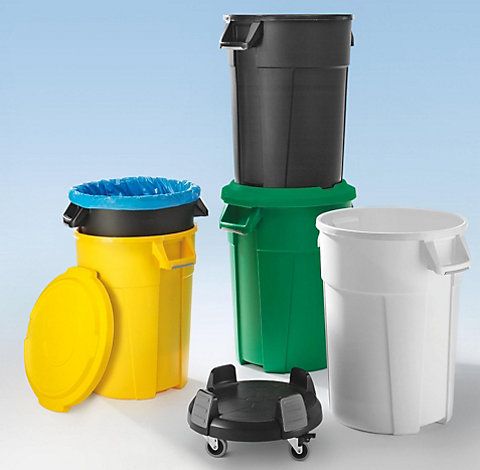The cries of "when will government do something" will not lead anywhere as long as the overall attitude is not changed. Waste management has to be seen as the polluters' responsibility and each household, hotel, industry, etc producing waste must participate in its organized removal. Otherwise, there will not be a comprehensive solution for untreated waste along the roads and beaches in Goa.
June 3-9, 2013
Rainer Lotz
A look at the figures for waste generated by private households in India compared to Germany leads to a startling result: Whereas Germans discharge about 1.26 kg a person per day, in India we have about 0.5 kg a day per head. Yet, Germany even with two and a half times the amount of garbage, still manages to keep the country generally free of littering and of growing landfills where residual waste is disposed.
Shabana Kazi, research associate, Educating Youth for Sustainable Development, TERI, gives some figures on the Goan situation. As per her estimate, 400 tons of garbage generated per day in the state includes about 200 tons of non-biodegradable waste which largely goes untreated into landfills. And even the other half is hardly used for composting or other recycling procedures. Besides the obvious problem of how to collect and where to dump all the garbage often enough against the will of the affected residents, in whose backyard ‘landfills’ are being created, she deplores that “the current composting and recycling rates are extremely poor in the state rendering waste to remain largely as - waste i.e. a discard, rather than a resource.”(http://articles.timesofindia.indiatimes.com/2013-01-13/goa/36310799_1_waste-management-municipal-solid-waste-goa-non-biodegradable-garbage)
She specifically quotes "poor civic sense coupled with the haphazard manner" of the responsible public agencies as the main reasons for an "indiscriminate burning and dumping of waste across the state". The distinction between cities and villages has become insignificant with an increasingly urbanized lifestyle and the resulting waste generation in the rural areas, most of all in the coastal villages with massive tourism.

The constant cries of "when will government do something" will not lead anywhere as long as the overall attitude is not changed. Waste management has to be seen as the polluters responsibility and each household, hotel, industry or whatever other entity producing waste must participate appropriately in its organized removal. Until this day comes, there will not be a comprehensive solution in sight for untreated waste along the acclaimed "pristine beaches" and in the villages and towns of Goa.
Not serious about rubbish here
The small state might be distinctly less polluted than most of India, but it is still far away from sustainable methods of waste management. Be it the heaps of plastic bottles along the beaches, the release of untreated sewage from hotels, private houses or industrial estates, market halls surrounded by the stench of heaps of neglected waste or the road sides littered with garbage from mostly private households it all indicates that there is hardly any serious attempt to implement a systematic way of going about the increasing pollution.
In this context, the situation in Germany may illustrate two points: A strict adherence to the principle of liability which means that the polluter pays coupled with a strong public consciousness about a clean and safe environment. The common concern, if not obsession, of Germans with cleanliness may be perceived as exaggerated and even irritating at times. Yet, the segregation of waste for recycling, as biodegradable garbage, plastic, paper and cardboard, glass, metal etc., has helped considerably to reduce the volume of residual waste and thereby slashing the costs and fees for its disposal.
Even hazardous waste like chemicals from private households is collected at specified places and times. Besides, the recycling of specified items was found to be commercially profitable. When the ordinance on obligatory deposits on plastic and metal containers for beverages and food was passed by the end of the 90s it led to a 300 Million Euros profit through recycling and simultaneously to a near total disappearance of such items from roadsides and even dust bins in the country. The broad public support for collecting and recycling electronic items, dry cells, glass bottles etc. through different agencies nowadays accounts for about 9 per cent of Germany's required raw material at the rate of about 2.1 Billion Euro annually.
Dual System to deal with garbage
![]() Presently, common households generally dispose their garbage according to a 'Dual System' which was introduced in Germany in 1991. Through this degree, a parallel system was established besides the existing one for the removal of residual waste run by the municipal agencies. According to German administrative law, waste management is organized as one of the municipal non-commercial public services or institutions like schools and universities, museums, hospitals, or the supply of electricity, water and others. In turn, each household is legally obligated to participate in the garbage collection and to pay for the use of the various dustbins for residual waste, paper and biodegradable garbage. The parallel Dual System was introduced as an attempt to deal with the increasing amounts of packaging waste - as we are facing today in modern India.
Presently, common households generally dispose their garbage according to a 'Dual System' which was introduced in Germany in 1991. Through this degree, a parallel system was established besides the existing one for the removal of residual waste run by the municipal agencies. According to German administrative law, waste management is organized as one of the municipal non-commercial public services or institutions like schools and universities, museums, hospitals, or the supply of electricity, water and others. In turn, each household is legally obligated to participate in the garbage collection and to pay for the use of the various dustbins for residual waste, paper and biodegradable garbage. The parallel Dual System was introduced as an attempt to deal with the increasing amounts of packaging waste - as we are facing today in modern India.
To control the overflow of dustbins and, more so, the dumping grounds, the producing companies were legally bound to either collect recyclable packaging waste on their own or join the "Green Dot" scheme. This meant they had to pay for the removal and the recycling of the waste they had produced and used. Since then, licences have been sold to the producers at rates based on the weight of packs, the material type used and the volumes of the products marketed per annum. With the money collected through these licences, a parallel waste management has been organized besides the municipal garbage removal. Whereas for the latter the individual households have to pay directly, the consumers finally pay for the Green Dot scheme as well, however discreetly, through the increased rates of the products they buy.
Today, the Dual System has been introduced in 23 European countries. 1,30,000 companies participate in it with about 460 Billion packages. Its enforcement through the various regulatory authorities, however, clearly varies. The Green Dot, signaling merely the producers participation in the Dual System, has often led to the wrong belief amongst the consumers that each marked item could be fully recycled.
Making Garbage Pay
The biggest problem however is rooted exactly in the basic principle which makes the system work, i.e. turning waste management into a commercial enterprise. With an annual turnover, in industries that are engaged in it, of presently 50 Billion Euro with about 2,50, 000 persons employed in it in Germany alone, the temptation has always been strong to make an extra buck by either not complying with the prescribed recycling procedures or by exporting the garbage to African and Asian countries instead of labor intensive segregation and treatment. Others simply cheat over the weight of the delivered "recyclable fraction".
Meanwhile, it has become obvious that the rates for one kilogram of garbage, segregated and recycled through the Dual System in Germany are about 3-5 times higher than what is spent on incinerating the ordinary waste as surrogate fuel. For this reason, only about 10 per cent of the waste collected under the Green Dot is presently truly recycled whereas the bulk of it goes as "solid recovered fuel" into fuel intensive industries. Only the recycling of plastic bottles, paper and cardboard, undefiled plastic sheets etc. and tins is close to 100 per cent and thereby commercially viable. The bulk of the collected waste under the Green Dot simply meets with the same fate as most of the residual waste incineration.(Photo: Incineration Plant) Still, as per the figures published by the German Federal Statistical Office for 2011, 77.6 per cent of the total waste was either recycled or used for generating electricity and heat.
(Rainer Lotz is a German who divides his time between Germany and the beautiful island of Chorao)
(Next week - Waste Management in Germany: Polluter Pays- 2)



